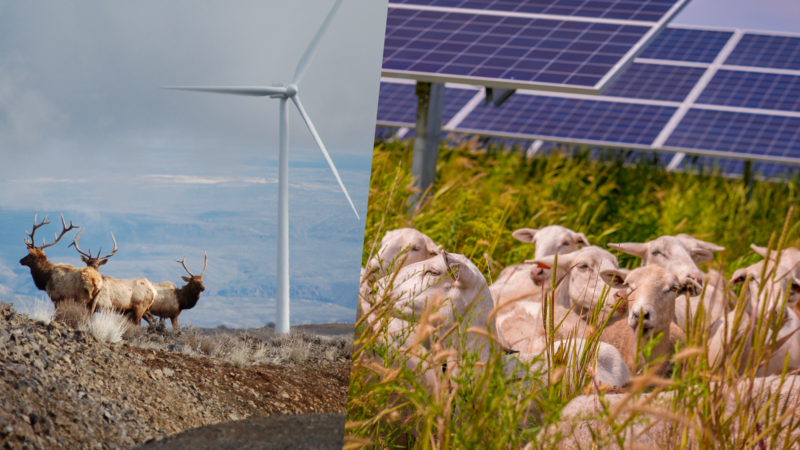
By Julia Worcester, REWI Communications Manager
In 2023 – the Renewable Energy Wildlife Institute’s (REWI’s) 15th anniversary – the organization’s 33 renewable energy industry Partners and Friends have full or partial ownership of 68.2% of U.S. operating onshore wind energy and 39.2% of U.S. operating solar energy at facilities 1 megawatt and greater in size (just one year after the launch of REWI’s solar program).[1] As of February 2023, 144 gigawatts of wind energy and 73.9 gigawatts of solar energy were online in the United States.
Working at the confluence of different sectors – namely the solar and wind energy industries and science and conservation organizations – REWI recognizes the need for evidence-based, bold, and balanced action. We know that renewables must scale if we are to hit net zero energy targets and mitigate the worst impacts of climate change. At the same time, we know that species conservation is necessary for the functioning of whole, healthy ecosystems.
These new statistics about the reach of REWI’s Partners and Friends demonstrate the success of our model. REWI’s Partners and Friends, industry companies as well as conservation organizations and agencies, make an organizational commitment to supporting wildlife conservation and responsible renewable energy development and act as REWI’s core champions.
Those impressive numbers translate to tangible impact across the country when we think about wins for the responsible development of solar and wind energy facilities that integrate conservation priorities into their plans and execution. “With REWI’s Partners and Friends representing such a large share of U.S. wind and solar, it ensures that research and collaboration facilitated by REWI will achieve results at a scale necessary for conserving wildlife populations,” said REWI Senior Information Science Manager Ryan Butryn.
(And these numbers only account for energy that is currently online – they don’t reflect the percentage of wind and solar energy projects that REWI’s industry Partners and Friends own or partially own that are under development or in advanced construction.)
We also celebrate our 13 conservation science Partners and Friends, which together represent millions of conservationists, scientists, and advocates throughout the United States. Each of their commitments and the numbers above demonstrate the value of the challenging and vital work we collectively engage in.
Climate change poses an existential threat to more than just Homo sapiens. Biodiversity and the natural world – our non-human relations – face the consequences of this crisis as well, which is leading to changes in habitat, food and resource scarcity, shifting migratory patterns, and a multitude of other cascading impacts.
Accelerating climate change necessitates action on a scale rarely seen before in human history. But perhaps more importantly, it necessitates social and economic paradigm shifts. We need a toolbox of tactics to not only mitigate the worst impacts of climate change, but to figure out how to adapt to changing conditions across the world, which are inequitably distributed across geography, race, class, and other factors.
Renewable energy is one of the most powerful tools in that toolbox.
The ongoing struggle to identify evidence-based, sustainable, responsible, and just solutions to the climate crisis is a matter of sustaining life on this planet for generations to come. More than anything, we need the collective power, resources, and action exemplified by REWI’s network of industry and conservationists that come to the table to bring solutions forward together.
[1] American Clean Power (2023, February 26). Clean Power Quarterly Market Report: Q4 2022. ACP. https://cleanpower.org/resources/clean-power-quarterly-market-report-q4-2022/.